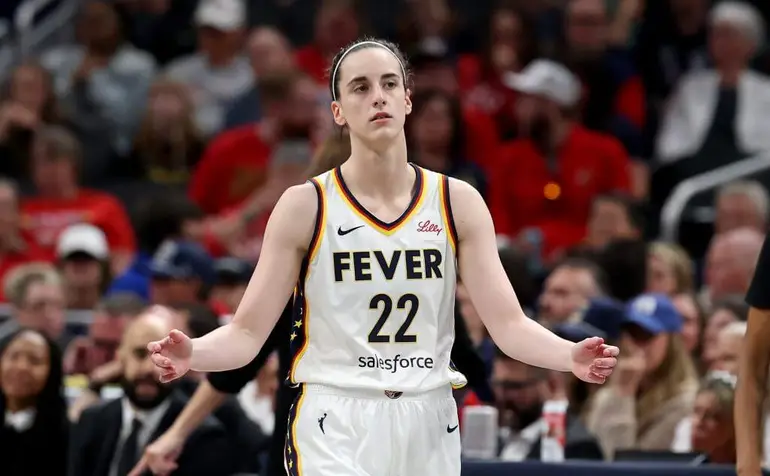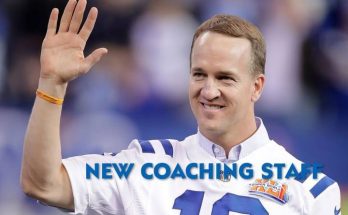When Caitlin Clark went down with an injury during the Fever’s early season matchup, the gasp across the arena echoed far beyond the walls of Gainbridge Fieldhouse. For a franchise eager to build around the generational rookie, Clark’s absence is as much a narrative twist as it is a personnel setback. But Fever head coach Christie Sides isn’t just focused on the short-term loss. She sees the moment as a unique opportunity—not just for Clark, but for the entire team.
“Of course, you never want to see any player get hurt,” Sides said during a media availability on Tuesday. “But this is part of the game. It’s a chance for Caitlin to step back, assess, and grow. And for the rest of the team, it’s a chance to rise, respond, and develop resilience.”
Clark, the No. 1 overall pick in the 2025 WNBA Draft, came into the league carrying more than just hype. She arrived with expectations, responsibility, and the hopes of a franchise on her shoulders. In many ways, she was expected to do what few rookies ever have: immediately transform a team’s identity. And to her credit, she was on her way. Averaging over 18 points and 6 assists in her first few games, Clark’s poise and vision were as advertised.
But the injury—a mild ankle sprain suffered in a collision during a fast-break sequence—forced a pause on her trajectory. Initially feared to be more severe, the diagnosis brought a sigh of relief. Still, she is expected to miss at least two weeks, and her absence leaves a significant gap on the court.
“Anytime you lose your floor general, it disrupts rhythm,” said Fever forward NaLyssa Smith. “But it also makes us dig deeper. We’ve been learning from Caitlin since day one, and now we’re taking those lessons and applying them ourselves.”
Smith, along with veterans like Kelsey Mitchell and Erica Wheeler, now finds herself in an expanded leadership role. Without Clark directing traffic, the onus falls on the rest of the roster to initiate offense, create opportunities, and tighten up defensively. And that, Sides says, is where the growth begins.
“We talk a lot about team identity,” Sides explained. “This team can’t just be about Caitlin. It has to be about everyone knowing their role, stepping up, and finding ways to contribute.”
In Clark’s absence, the Fever have begun experimenting with new offensive sets, prioritizing ball movement and off-ball activity. While the transition hasn’t been seamless, it has forced the team to confront its dependencies and reimagine its attack. Players who might have been content as role-fillers are now being asked to initiate, defend, and lead.
For Clark, the temporary removal from gameplay also provides a different kind of education. Watching from the sidelines, she’s gaining a coach’s perspective—seeing how defenses adjust to her teammates, observing the ebb and flow of momentum, and learning how to manage a team without touching the ball.
“She’s like a sponge,” said assistant coach Karima Christmas-Kelly. “Even during practice when she’s not participating, she’s asking questions, breaking down plays, and talking with teammates. She’s engaged, and that speaks volumes.”
For many rookies, injuries can feel like derailments. But Clark, whose collegiate career at Iowa was defined by her relentless competitiveness and basketball IQ, is choosing to treat it as a moment of reflection and recalibration.
“It’s tough not being out there,” Clark admitted. “But I’m learning a lot just by observing. I see things I probably wouldn’t notice while I’m playing. It’s helping me understand the game from a different angle.”
That mindset is part of what makes Clark so uniquely positioned to succeed at the professional level. Her ability to turn setbacks into stepping stones has long been part of her story. Whether it was fighting through double teams in college or overcoming early criticism from doubters, Clark has consistently turned pressure into performance.
Still, the Fever’s path forward without their star rookie will not be without its struggles. The team is young, and its chemistry is still forming. The offense, designed with Clark’s strengths in mind, now must be adapted on the fly.
“We’re not going to replicate what Caitlin does,” said Mitchell, the team’s leading scorer last season. “But we can keep moving forward. It forces everyone to be more vocal, more accountable, and more in sync.”
The coaching staff has embraced the moment as a teaching opportunity, both in terms of Xs and Os and locker-room dynamics. Sides has encouraged players to lean into discomfort, to embrace trial and error, and to trust the process.
“Growth doesn’t happen when things are easy,” Sides said. “It happens when you’re challenged. When you’re forced to adapt. And that’s exactly what this moment demands.”
Beyond the tactical adjustments, Clark’s absence has also sparked a deeper sense of collective responsibility within the locker room. Team meetings have become more interactive. Film sessions more collaborative. Practices more intense.
“You can feel it,” said second-year guard Grace Berger. “Everyone knows we have to bring more. Whether it’s energy, focus, or communication—we’re all stepping up.”
From the outside looking in, it might be tempting to view Clark’s injury as a setback for the Fever’s long-term aspirations. But internally, there’s a growing belief that this could be the very moment that defines the team’s character.
“We talk a lot about building a culture,” said Sides. “And culture isn’t built when everything is going your way. It’s built when things are tough. When you’re missing your star and still finding a way to compete.”
Clark’s return, expected in the next few weeks, will no doubt be met with fanfare. But when she steps back onto the court, she may find herself surrounded by teammates who are stronger, more confident, and better prepared to share the spotlight. And that, in Sides’ view, is the ultimate win.
“We want Caitlin to be great,” Sides said. “But we also want this team to be great. And sometimes, the best way to grow is through a little adversity.”
As the Fever navigate the coming games without their brightest star, they do so with a sense of purpose. Clark may be on the bench, but her influence remains ever-present. And when she returns, both she and her team may find themselves more prepared than ever to chase greatness together.



